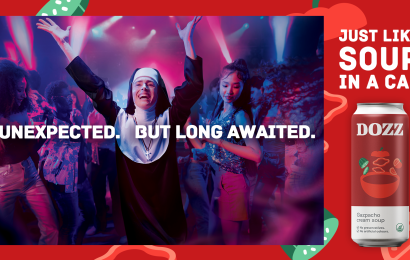Golin and iSense researched how much CSR matters for Romanian consumers
A study made by Golin Romania and iSense Solution aimed to find out how important is, for Romanian consumers, that the brand they buy or the company they interact with is actively involved in social responsibility activities (CSR).
The study offers relevant information over the way each of the 3 generations (Z – 18-25 yo, Millennials – 26-35 yo – and Mature – over 35yo) are perceiving the CSR concept, how known are those activities among the public and how they can influence the employer branding of a company and attraction of new talents, but also satisfying the demands from different types of public, as consumers of products and services.
Corporate responsibility, its sustainability or social purpose are terms we are frequently operating with in communication or in the strategies presented to companies’ boards, but also terms the public is less familiarized with. Despite of that, at least at declarative level, the consumers often say that they are more eager to buy a product from a brand that “does good” then from a company that is socially inactive. Today, the consumers are expecting a company to be an active citizen of the community, involved and responsible, maybe also from a need to solve social and community problems that other sectors do not manage to fix in time and efficient . That is why we tried to identify, through this study, how Romanians are understanding CSR, where they get information about such actions or how should a relevant communication on this subject look alike
Irina Roncea,
Managing Director Golin.
The research sought to find out how known the CSR term is among the 3 generations analyzed: only 6% of Romanian internet users aged 18-65 yo heard of the concept and can explain it, while 47% heard about it, but cannot explain it.
The CSR concept started to shape up more and more in consumers’ minds, having different meanings depending of the generation each is part of, despite the fact that the percentage of those defining it is quite low. Generation Z represents the segment that shows the highest interest for those campaigns ran by companies, giving them high educative valences, aimed to change the society for good. Millenials are reporting to CSR by focusing on companies’ interest to increase their notoriety and image by improving the negative effects. Over 35 generation expects those campaigns to be credible and to have real and measurable results
Denisa Apreutesei and Alina Zelezneac,
Qualitative Research Manager & Research Manager, iSense Solutions
31% urban consumers heard of at least one CSR campaign ran by a company. Internet is the main info source for 66%, followed by TV commercials (61%) and influencers supporting the campaigns (32% urban consumers that use internet).
In the same time, social networks like Facebook and Instagram are representing the main online source for 77% urban consumers, followed by general news websites (50%) and YouTube (39%), a platform mainly preferred by Generation Z (75%).
Romanian urban consumers believe that, most times, companies get involved in CSR projects to improve brand’s image (91%), to self-promote (90%) and to be closer to consumers (79%).
When it comes of Millennials (74% vs. 68% total), the involvement of companies in CSR can also represent an employer branding effort.
6 out of 10 Romanians urban consumers with access to internet say CSR actions made by companies can solve problems that have to do with access to education, access to health services, development of infrastructure or problems related to air pollution.
Regarding how a CSR campaign should be, Romanian consumers think it has to have results (73%), to be clear (71%), to be very visible (55%), but also to make them get emotionally involved (48%) and be creative (47%).
The study was made by iSense Solutions for Golin, involved people aged 18-65, internet users from urban areas. The data was collected online in October and is representative at urban level






